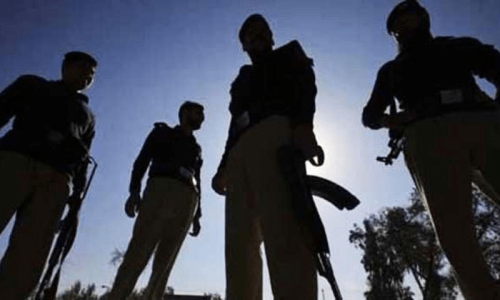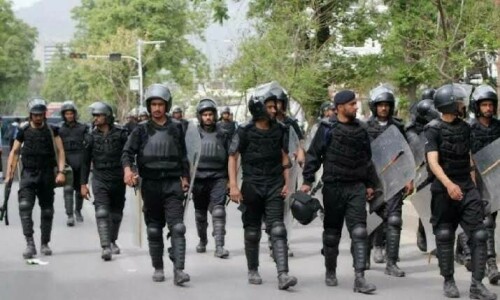LAHORE, Sept 7: Personnel of the armed forces and judiciary may also be held accountable under a new accountability mechanism, Dawn has learnt.
Prime Minister Yousuf Raza Gilani has constituted a committee headed by Law Minister Farooq H. Naek and comprising Adviser on Interior Affairs Rehman Malik, Defence Minister Ahmed Mukhtar and Planning Commission’s chairman Salman Farooqui to work out the new system which will be introduced after the National Accountability Ordinance of 1999 in repealed.
There was no provision in the ordinance to deal with corruption in the judiciary and armed forces.
According to interior ministry sources, the new law would wind up the accountability courts functioning under the law ministry and corruption references would be filed in sessions courts.
The Public Accounts Committee (PAC) would handle corruption cases of government employees, the sources said.
The sources said the National Accountability Bureau was likely to be renamed as national accountability commission or national commission for accountability.
Setting up a ‘truth and reconciliation commission’ on the lines of the South African and Bangladeshi models was also under consideration, they said.
Cases of corruption by politicians would be referred to the commission.
In Bangladesh, people involved in corruption, including politicians, are required to admit their guilt before the commission and return the amount to the national exchequer to avoid prosecution.
Commenting on the proposed changes in the accountability set-up, a NAB official said the armed forces generally did not make their corruption cases public, especially about officers involved in defence procurements, although corrupt officers usually faced strict punishment and dismissal from service.
He said one hardly witnessed action against any judicial officer on corruption charges despite the presence of the Supreme Judicial Council.
He said the PAC, comprising politicians from ruling and opposition parties, had failed in the past to seriously follow up audit objections.
He said prosecuting corruption cases in lower courts was likely to open another avenue of corruption because the officials involved would use their wealth to influence them.
“Ironically, the PM has entrusted the task mostly to people who had faced corruption charges in the past and got immunity under the National Reconciliation Ordinance,” the official added.











































Dear visitor, the comments section is undergoing an overhaul and will return soon.